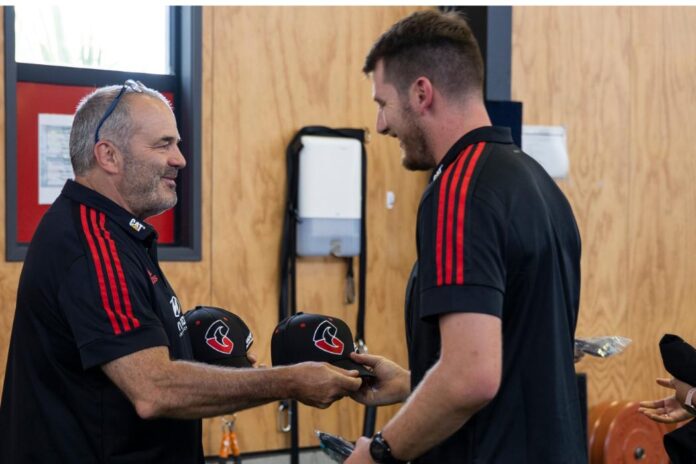Source: University of Canterbury
14 October 2021
Whether it’s a child learning how to tackle or professional players at the Super Rugby Final, mouthguards are essential kit. But imagine if this rugby accessory could help improve performance as well as safety?
University of Canterbury PhD candidate Hamish Dewar is taking the humble mouthguard to the next level. He is applying his Health Sciences doctoral research in the Crusaders’ Strength and Conditioning department to use mouthguards to measure impacts and collisions on the field, and ultimately help players prepare better for their next game.
As a Masters student, Hamish participated in the University of Canterbury and Crusaders Internship Programme, where he developed industry connections and gained a taste of where he could go in his career.
After graduating with a Bachelor of Sport Coaching and a Master of Sport Science with Distinction, Hamish is now investigating new ways of monitoring player workloads. His PhD research aims to investigate the demands of match play, so players are training and recovering in ways that ensure they can perform at their best on game day.
“Basically, what I’m doing is trying to measure impacts and collisions on the field. We’re doing more than just counting the number of contacts, such as a tackle or a ruck – we’re trying to understand what’s actually happening at the collision, because no two contacts are the same. We are using accelerometers to measure the forces of impacts out on the field to give us the data we require. With access to this data, we can look at and assess it, then train players to best prepare them for their next game,” Hamish says.
“We’re trying to better understand what’s currently happening, and then enhance the knowledge we have to apply it in slightly different ways. It’s about gradual modification to help the team play better each time.”
His practical research is a direct response to conversations with the former Head of Performance Simon Thomas and Performance Sport Scientist Shaun Owen around the team’s focus for the future. His doctoral supervisor, UC Sports Science Professor Nick Draper, supported Hamish in identifying how he could design his PhD project to focus on finding solutions in response to the Crusaders needs.
“It’s brilliant seeing how passionate Hamish is about getting out there and using his experiences to build on his knowledge basis and form ideas,” says Professor Draper.
“We look at what’s going on in the industry and align our research so that when we make new discoveries, we can share it in a way that will create better outcomes for everyone, especially our local community.”
Professor Draper has his own research interests in sports collision effects, working closely with the industry to study the risks of head injury, and whether safer protective headgear could make a difference.
Before Super Rugby pre-season ramps up again for next season, Hamish is working with the Canterbury NPC team until late November, as he continues work on his PhD. In future he hopes to stay at the forefront of the sports science industry as it grows.



